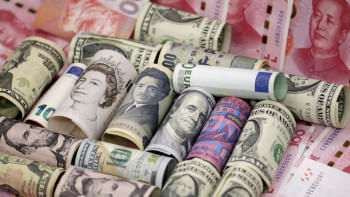US credit rating downgrade: Is all the commotion justified?

The US debt has long been regarded as one of the most secure investments one could contemplate. The highly improbable chance of default by the United States, coupled with the supremacy of the US dollar, leads investors to view US Treasury bonds as an appealing investment option, especially for those who are highly risk-averse. Nevertheless, a significant event occurred when Fitch, one of the foremost credit rating agencies, downgraded the US government's treasuries from AAA to AA+ grade. This action has sparked concerns among many individuals, raising doubts about the stability of the US economy.
The downgrade occurred after President Joe Biden and the Congress came close to being unable to meet the debt obligations due to the substantial amount of debt the US holds. Consequently, it appears that this downgrade exposes certain vulnerabilities of the nation, impacting its global reputation and inciting panic among investors.
The turmoil during the last election damaged the US' image as a stable and united country. From now until November 2024, politicians will be pursuing votes and be more concerned about winning the elections, rather than what is best for the country. But it is crucial to set aside differences and work together.
The significance of the US debt in the global economy is crucial, as it frequently serves as a benchmark for returns on stocks and other bonds. As US bonds are generally regarded as nearly risk-free assets, investors usually seek higher yields on alternative securities. If this downgrade implies that US debt is no longer risk-free, its benchmarking attribute might also be impacted.
However, not many investors believe that the downgrade by Fitch will have consequences in the short run. Similar to what occurred 12 years ago when another credit rating agency, Standard & Poor's, decided to downgrade US bonds, there is no reason to think that the US economy will experience a decline. Thus, the US establishment should continue as is. Furthermore, the other major credit rating agency, Moody's, still assigns the highest credit rating to US debt. Therefore, the "erosion of governance" in the US with respect to other major economies mentioned by Fitch is not a perspective shared by everyone in the industry.
Meanwhile, officials from the Biden administration and Treasury Secretary Janet Yellen have expressed their dissatisfaction over Fitch's decision. They argue that the rating change is founded on outdated data and lay blame on the Trump administration. In particular, they have pointed out that Fitch highlighted the incident that occurred in January 2021, when Trump's followers converged on the Capitol Hill.
Continuing along the same line, numerous experts suggest that this downgrade has occurred not due to the country's economics, but due to politics. They contend that while the US may have become slightly riskier, it remains the safest place to invest your money. This is the case even though other economies such as Norway or Singapore boast a higher credit rating.
Jamie Dimon, chief executive of JPMorgan Chase, mentioned that the Fitch downgrade is somewhat irrelevant. He explained that the downgrade should not significantly impact investors' opinion of the US' ability to repay its debt. Dimon maintains that the US economy is the most substantial economy the world has ever witnessed and that it will not be influenced by a rating agency. He argues that the market is the ultimate decision-maker. If investors continue to place their trust in the American economy, the rating for US debt should remain at its highest possible level. Furthermore, Dimon concurs with concerns about politics and believes that the issue of the debt ceiling should be addressed.
We believe that all this commotion is the characteristic of every economic cycle, and just as it emerged, it will eventually dissipate. As most experts argue, the US remains the foremost global economy, earning the trust and respect of nations worldwide. It seems rather illogical that countries boasting higher credit ratings than the US would be investing in its bonds. It is true that there are many issues that should be addressed and rectified within the nation. As mentioned earlier, the debt ceiling is one of them. The US should formulate a plan or agenda that tackles this problem. While it is true that as long as countries continue to trust in the US as a robust economy, the US will never exhaust its borrowing power – everything does have a limit. Perhaps a more precise tax treatment can assist, along with controlling the import-export deficit.
We also have the political controversy. The turmoil during the last election damaged the US' image as a stable and united country. From now until November 2024, politicians will be pursuing votes and be more concerned about winning the elections, rather than what is best for the country. But it is crucial to set aside differences and work together.
Although all of these issues combined could become a serious problem for any nation, the reality is that the US is made to be virtually bulletproof. It takes more than that to erode America's supremacy, mainly because there is no other nation capable of assuming that position. Just as the Roman Empire wasn't built in a day, the US nation will not crumble in a single day either.
M Kabir Hassan is a professor of finance at the University of New Orleans, US.
José Antonio Pérez Amuedo is a doctoral student at the University of New Orleans, US.

 For all latest news, follow The Daily Star's Google News channel.
For all latest news, follow The Daily Star's Google News channel. 





Comments